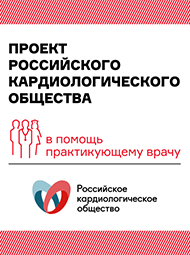The American College of Cardiology and American Heart Association have released an updated guideline for the management of patients with non-ST elevation ACS
The societies have adopted the term non-ST elevation ACS to refer to patients with unstable angina or non-STEMI because “at presentation, [they] can be indistinguishable and are therefore considered together,” Ezra A. Amsterdam, MD, FACC, chair of the writing committee, and colleagues wrote.
The panel made numerous recommendations in the following areas: initial evaluation and management; early hospital care; myocardial revascularization; and late hospital care, hospital discharge and post-hospital discharge care. It also wrote recommendations addressing the management of certain special patient groups.
Early invasive strategy often needed
“There is general acceptance of an early invasive strategy for patients with [non-ST elevation ACS] in whom significant coronary vascular obstruction has been precisely quantified,” Amsterdam, distinguished professor of internal medicine, associate chief of cardiology for academic affairs and master clinician educator at the University of California (Davis) School of Medicine, Sacramento, Calif., and colleagues wrote. “Low-risk patients with [non-ST elevation ACS] are documented to benefit substantially from [guideline-directed medical therapy], but this is often suboptimally used.”
The guideline outlines an antiplatelet/anticoagulant dosing strategy for patients with definite or likely non-ST elevation ACS who will need PCI.
The panel recommends that all patients should receive nonenteric-coated aspirin immediately upon presentation, and that a maintenance dose of aspirin should be continued indefinitely. Patients unable to take aspirin should receive a loading dose of clopidogrel followed by a daily maintenance dose, according to the panel.
Besides aspirin, patients treated with an early invasive or initial ischemia-guided strategy should receive clopidogrel or ticagrelor (Brilinta, AstraZeneca), with ticagrelor preferred, for up to 12 months. In patients treated with coronary stents, prasugrel (Effient, Daiichi Sankyo/Eli Lilly) is also acceptable, the authors wrote.
Glycoprotein IIb/IIIa inhibitors are recommended for patients treated with an early invasive strategy and dual antiplatelet therapy who have intermediate- or high-risk features, Amsterdam and colleagues wrote.
Anticoagulation is recommended besides antiplatelet therapy in all patients with non-ST elevation ACS regardless of initial treatment, and acceptable options include enoxaparin (Lovenox, Sanofi Aventis), bivalirudin (Angiomax, The Medicines Co.) and fondaparinux, according to the panel. However, IV fibrinolytic treatment is not recommended for this patient population.
Bleeding risks
Patients with atrial fibrillation and non-ST elevation ACS who receive a coronary stent are at risk for bleeding from triple anticoagulant/antiplatelet therapy. There is evidence that eliminating aspirin may reduce that risk, but more research is necessary, the panel wrote.
Amsterdam and colleagues also called for more research to determine the optimal utility of high-sensitivity cardiac troponin as a biomarker.
Another unmet need is to better distinguish which older patients with non-ST elevation ACS are candidates for an ischemia-guided strategy vs. an early invasive management strategy, they wrote.
It is also necessary to clarify the pathophysiology of patients with non-ST elevation ACS and angiographically normal or nonobstructive CAD, a group with a large proportion of women. “Their prognosis is not benign, and the multiple mechanisms for ACS postulated for these patients remain largely speculative,” the panel wrote.
Source: www.healio.com


.jpg)



